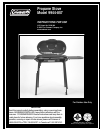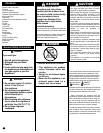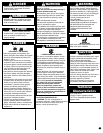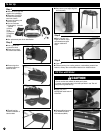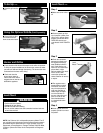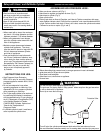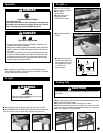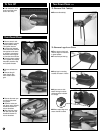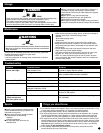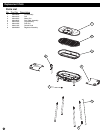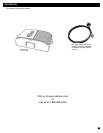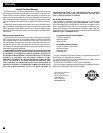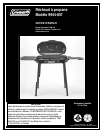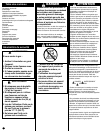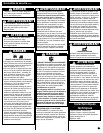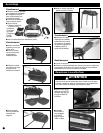Special offers from our partners!

Find Replacement BBQ Parts for 20,308 Models. Repair your BBQ today.
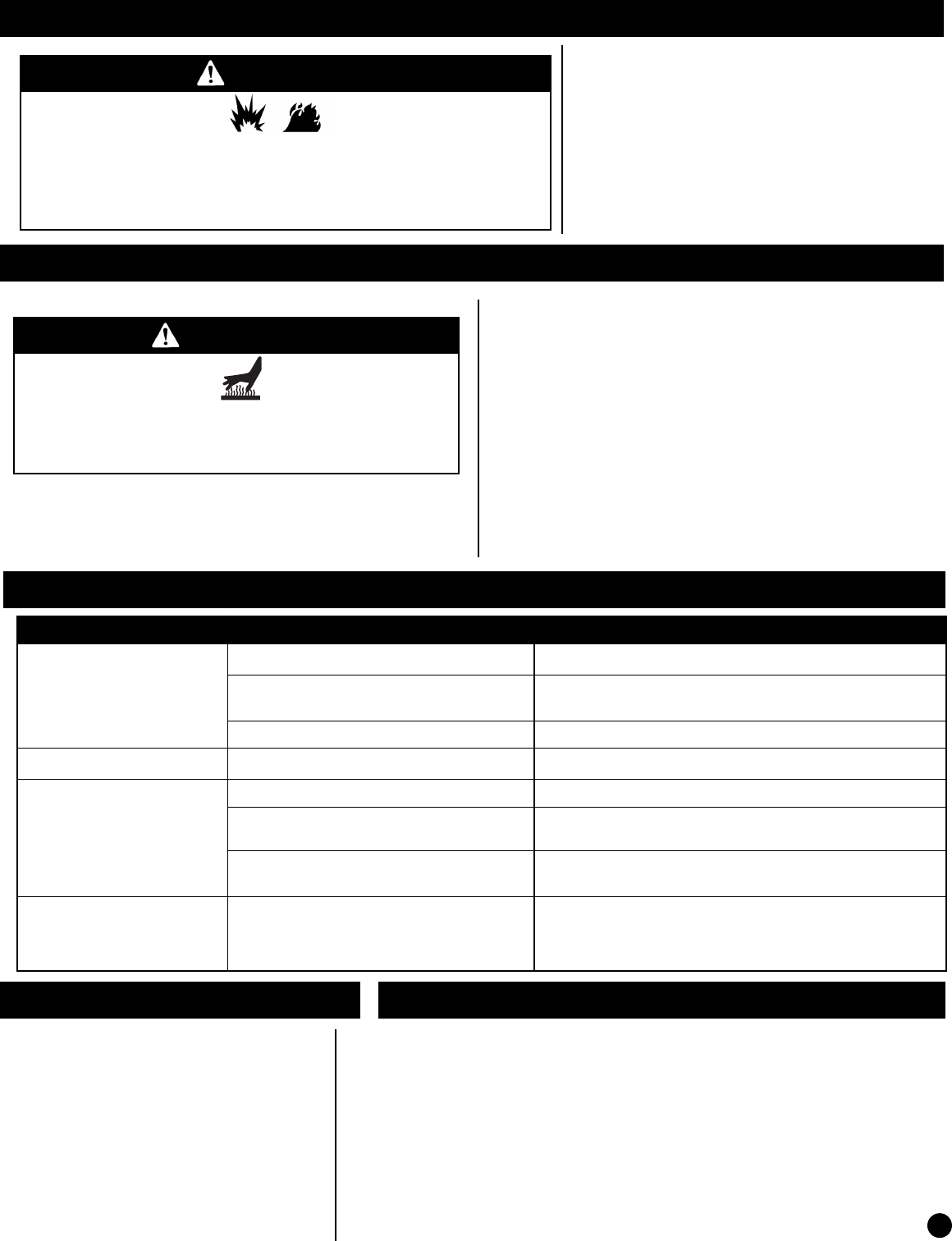
Storage
Maintenance
• BURN HAZARD
• Do not touch or attempt any maintenance on stove for at least one hour after use.
• Make sure all controls are off and propane tank has been removed before
doing maintenance.
WARNING
To enjoy years of outstanding performance from your stove, perform the
following maintenance activities on a regular basis:
• Keep exterior surfaces clean.
• Use warm soapy water for cleaning. Never use flammable or abrasive
cleaning agents.
Problem Possible Cause Solution
Burner won’t light Gas pressure is low. Cylinder is empty. Replace cylinder.
Air in gas line. Burner may take up to one minute to light
after a propane bottle has been connected.
Igniter is wet. Light the stove with a match.
Burner won’t stay lit Dust and/or dirt built up around burner Clean dirt and/or dust from around burner.
Burner flame is low Gas pressure is low Replace cylinder.
Outdoor temperature is less than 40° F Use a full cylinder.
and tank is less than 1/4 full.
Fuel flow is restricted. Check burner and orifices for blockage. Adjust control
knob to full ON position.
Fuel flow is restricted. Check burner, orifices and venturi for blockage (bugs,
dirt, cobwebs).
Troubleshooting
Improper Flame
(Flame should be blue
with hint of yellow on tips)
• Airflow must be unobstructed. Keep controls, burner and circulating air
passages clean. Signs of possible blockage include:
-Gas odor
-Stove makes popping noises
-Smoky flame.
• Spiders and insects can nest in burner orifices. This condition can
damage the stove and render it unsafe for use. Clean burner holes by
using a heavy-duty pipe cleaner. Compressed air may help clear away
small particles.
• Carbon deposits may create a fire hazard. Clean burner with warm
soapy water if any carbon deposits develop.
• If the stove has been left uncovered and is wet from rain, snow, yard
sprinklers, etc., allow to dry (at least 30 minutes prior to use).
• NOTE: In a salt-air environment (such as near an ocean), corrosion
occurs more quickly than normal. Frequently check for corroded areas
and repair them promptly.
Service
■ Repair to gas passages and associated com-
ponents should be done only by Coleman or an
authorized service person.
■ Owner repair and service should be limited
and performed only to the following:
• Cleaning
• Cylinder replacement
■ For Authorized Repair & Service, call
1-800-835-3278.
Things you should know
1. It is unsafe and illegal in some places to store or use propane cylinders of greater than 1.14 kg
(2.5 lbs) water capacity (approximately 1 lb. propane) in occupied enclosures.
2. If using refillable propane cylinder, use only Coleman® parts and accessories.
3. The usual storage areas for camping and picnic equipment are the basement, attic, or garage.
To avoid the accumulation of dust, cobwebs, etc., that is common in these areas, place your
stove in optional carry case (sold separately) or a plastic bag and seal it with a rubber band.
4. For repair service call one of the numbers listed on the cover of this manual for location of your
nearest Coleman Service Center. If product must be mailed to Service Center, attach to product
your name, address and a description of problem and mail to Service center with shipping and
insurance prepaid. If necessary to write the Service Center or factory, refer to your stove by
model number. Do not send propane cylinder.
5. If not completely satisfied with the performance of this product, please call one of the
numbers listed on the cover of this manual.
9
• EXPLOSION - FIRE HAZARD
• Never store propane near high heat, open flames, pilot lights, direct sunlight, other
ignition sources or where temperatures exceed 120 degrees F (49°C).
• The cylinder must be disconnected when the stove is in storage.
• Do not store a spare LP-gas cylinder under or near this appliance. Failure to follow
the above instructions exactly may result in fire causing death or serious injury.
DANGER
■ Store propane tank in safe manner. Refer to Chapter 5 of
Standard for Storage and Handling of Liquefied Gases
,
ANSI/NFPA 58. Follow all local codes. Always store propane
tanks outdoors.
■ Store stove in a dry, clean and safe place.
■ Place the cleaned water pan, grill, griddle and
REGULATOR into the stove for storage.
■ For long-time storage, clean and dry all stove parts before
storing. This will keep the unit clean and ready for the next season.



